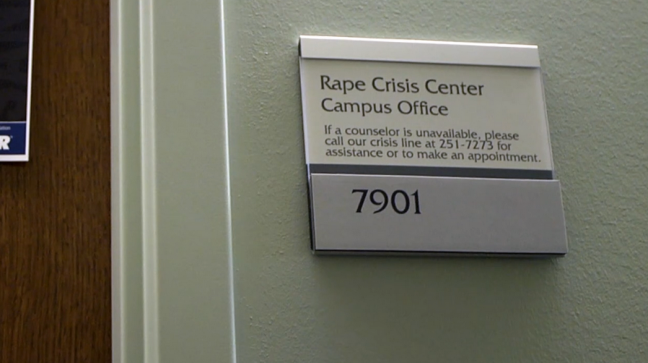Though the state delayed processing almost 4,000 sexual assault kits, Wisconsin Department of Justice is now starting to test them — giving victims more control and the opportunity to move toward healing.
Sexual assault kits or rape kits contain DNA evidence that a victim provides from their body after assault, Jaime Sathasivam, director of client programming at Dane County Rape Crisis Center, said. The kits, which are collected through a free forensic exam under the Sexual Assault Nurse Examiner, or SANE, program, have been in place in Wisconsin for more than 20 years and can be useful to victims.
The SANE exam consists of checking the victim’s body to ensure they are healthy and do not have problems like sexually transmitted infections, Sathasivam said. Julie Baisa, coordinator of UnityPoint Health-Meriter’s Forensic Nurse Examiner Program said the exam can also record this information as evidence of assault and place it in a sexual assault kit.
Prior to 2011, law enforcement agencies were not required to test kits in their custody, Madison Police Department Detective Sam Kellogg said. This led to a backlog of 4,000-6,000 kits sitting in storage. The Sexual Assault Response Team Protocol, implemented in 2011, has required law enforcement agencies to test all kits since.
Kellogg said Wisconsin received $4 million from the U.S. Department of Justice to catalog and test the five-year backlog of kits in 2015. But because of a lack of guidance, law enforcement has only recently begun sending these kits for testing.
Wisconsin Attorney General Brad Schimel said in a letter that the state did not test the kits because the U.S. Department of Justice Bureau did not give its approval to do so. Wisconsin recently received this approval and has begun testing kits.
Sathasivam said victims who go for a SANE exam are also given emotional support. This support can help them advocate for themselves, discuss the assault with family members and overall, help them through the healing process.
Victims are at complete liberty to decide whether they want to create a sexual assault kit, Sathasivam said. But there is a five-day deadline for recovery of evidence, she said. Victims can also decide what information they want in their kit, Baisa said.
“What I want people to know about SANE exams in general is that they’re really in control and they take the lead,” Sathasivam said.
Wisconsin to test sexual assault kits, help victims ‘move forward’
More than 500 victims undergo the SANE exam every year, Baisa said. Of those, almost half are under 18.
If the victim decides to approach law enforcement, the responsible agency will take their kit into custody and send it to a forensic crime laboratory to be tested, Kellogg said. The kit can be held indefinitely at the law enforcement agency until it is needed. If the victim is unsure of whether they want to report to law enforcement, their kit will be sent to a crime lab and stay there until the victim makes a final decision.
Sathasivam said most victims whose kits have been in the backlog likely do not remember that they are there or think they have been destroyed. But there could be some victims who believe their kits are part of the backlog and think they should still be processed. These victims should reach out to the law enforcement officials they worked with or Dane County Rape Crisis Center, Sathasivam said.
Kellogg said sometimes the kits are not even used because other evidence is present. Witness testimonies, for example, are often considered sufficient evidence of an assault.
Baisa said there is a ten-year period during which the victim can make this final decision, after which their kit will be destroyed. In a system implemented January, unsure victims are given a consent form that gives them information about how long their kits will be held and resources they can contact.
“It all depends on what [victims are] comfortable with,” Baisa said.
Once this period is up, the crime lab will destroy the kits without further notice. Baisa said victims are not notified when the kits are being destroyed because it could trigger negative emotions associated with the assault.
Baisa said underage students or victims who are unsure if they were assaulted while drinking should know they will not be a given a drinking ticket. The Sexual Assault Amnesty Act of 2016 mandates this. If students are still unsure, they can choose to send their urine sample through the hospital to check for potential issues instead of undergoing a SANE exam.
Proposed bill would give sexual assault victims amnesty from drinking citations throughout Wisconsin
People looking to get information on their sexual assault kits or to report sexual assault can call the Rape Crisis Center hotline at (608) 251-7273.

















